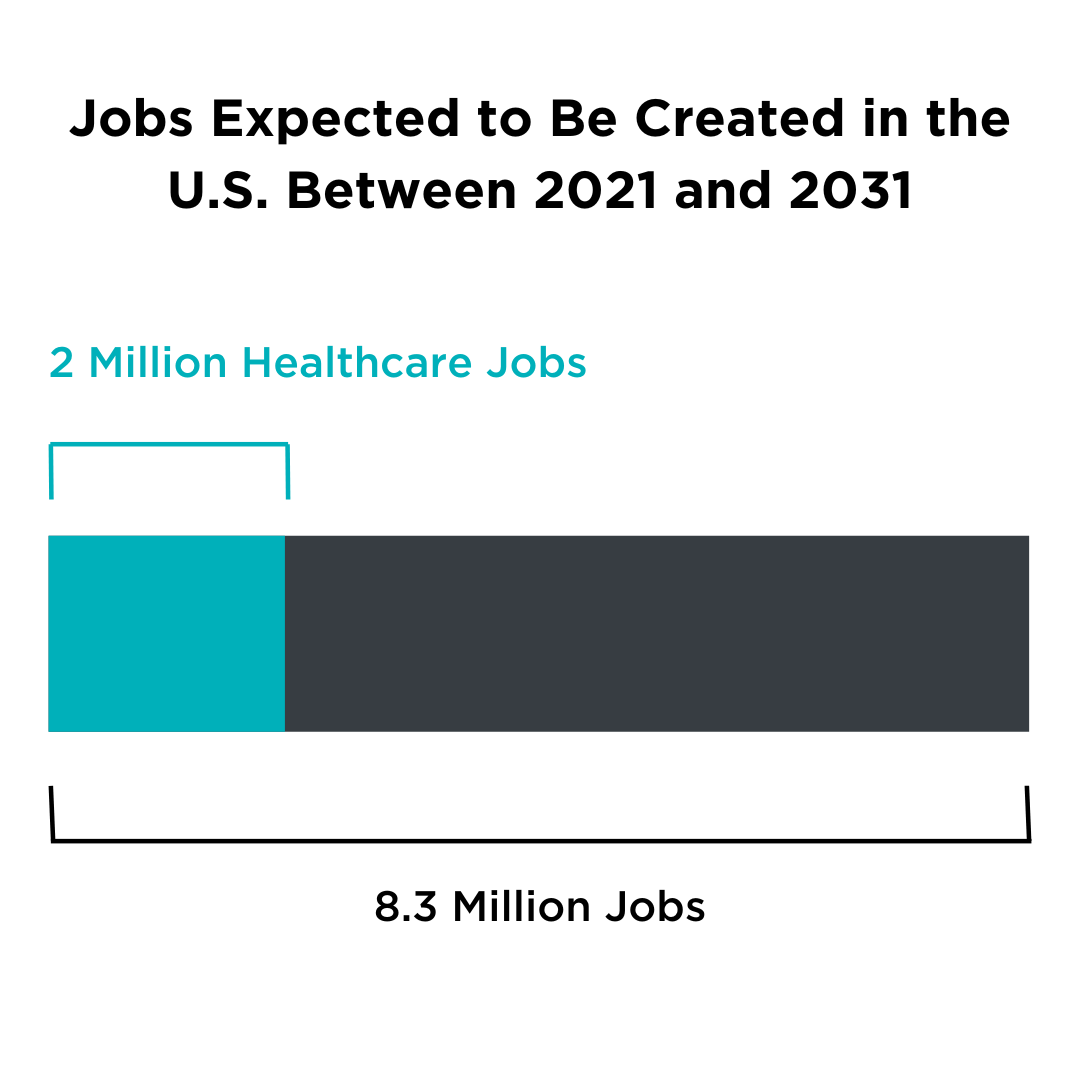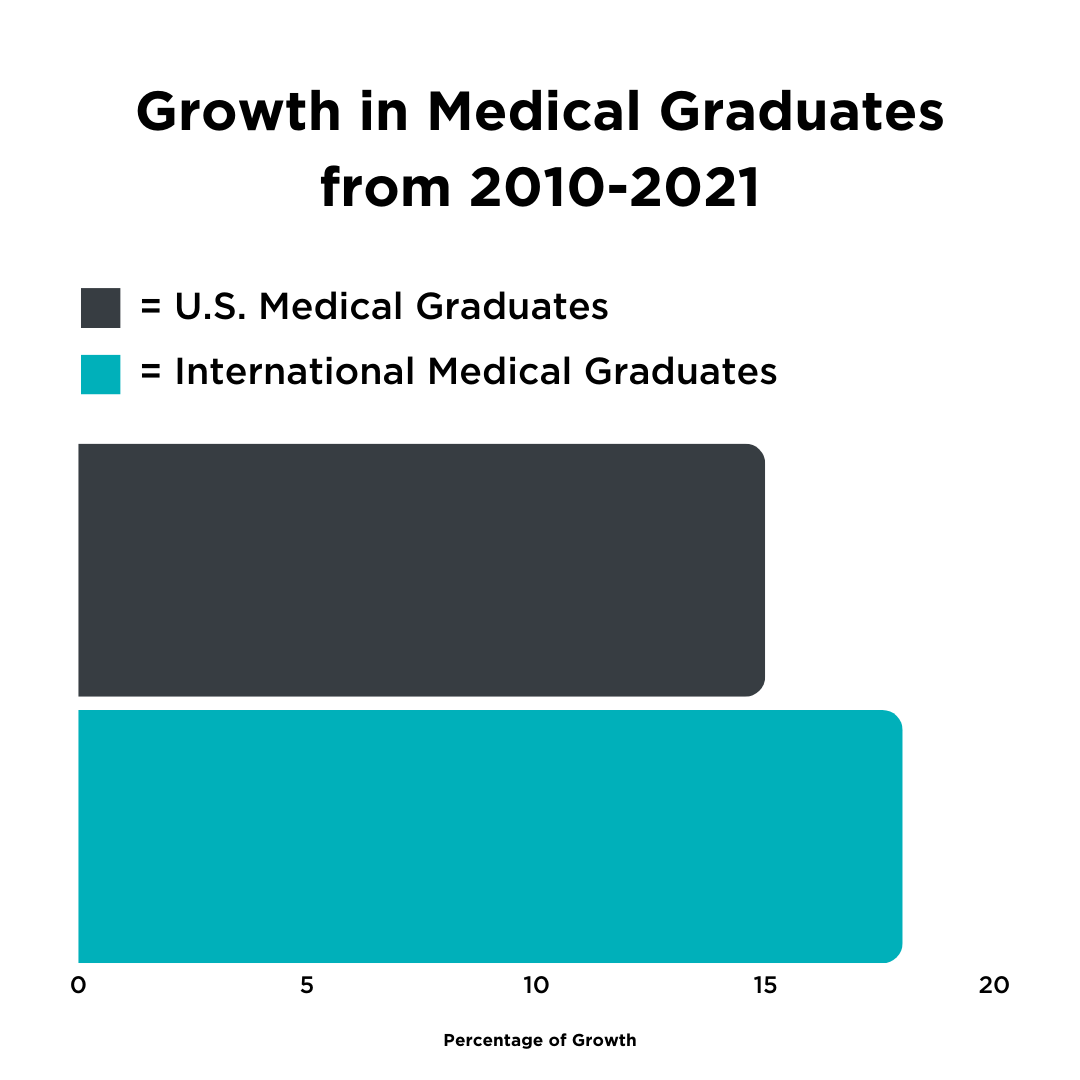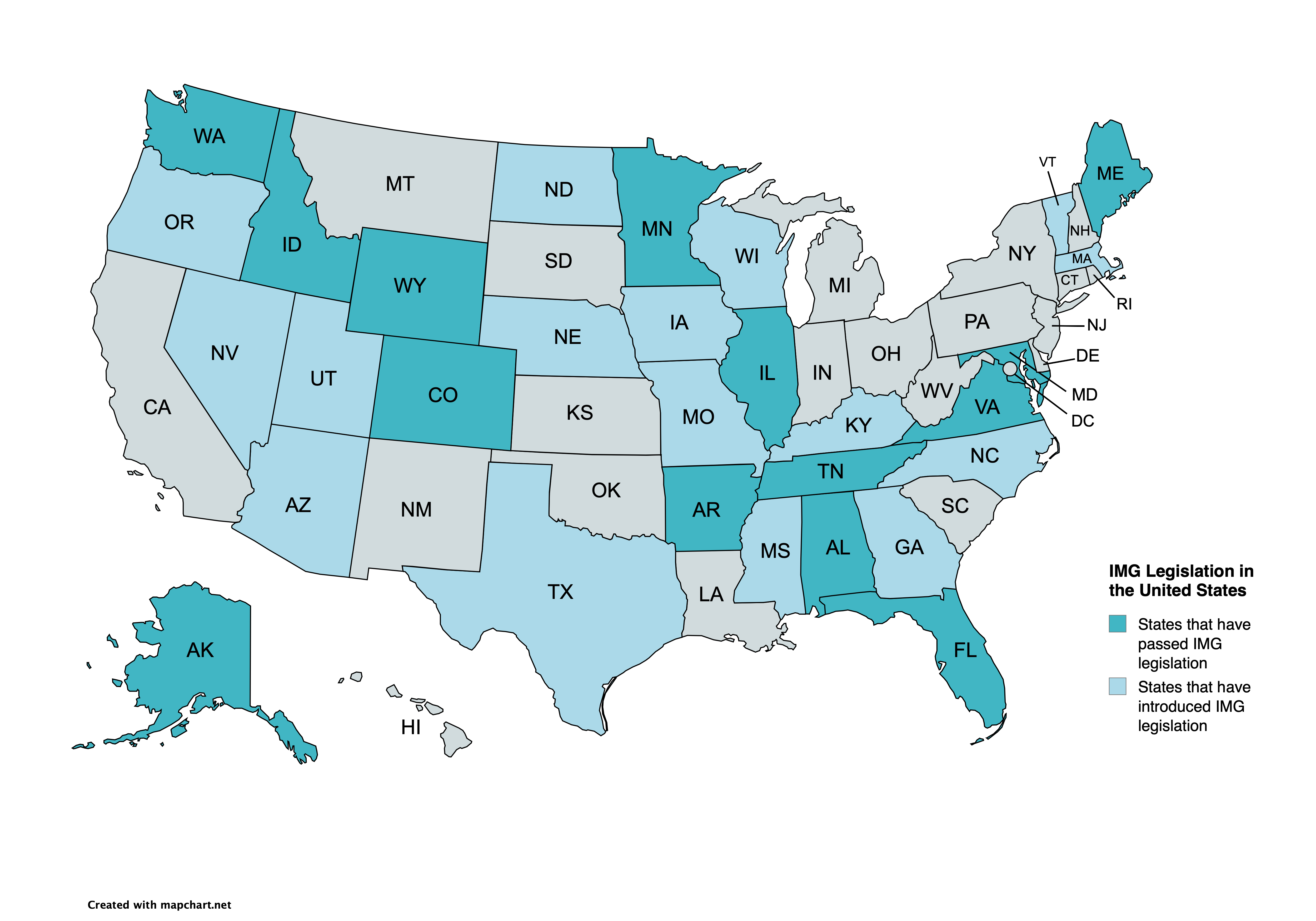Healthcare is arguably Northeast Ohio’s strongest sector; we are home to world-class, internationally renowned hospitals and healthcare institutions that provide exceptional care and drive economic growth to our region. Healthcare is also one of the most international sectors of our economy.
A study published in 2022 found that “physician” was tied for the most common profession for foreign-born Northeast Ohio residents. Despite this, across the country hospitals are facing severe staffing challenges, and Northeast Ohio is not immune to this shortage.
Nationally, the United States could see a shortage of 139,000 physicians within the next decade (American Association of Medical Colleges). Due to retirement, the aging of Ohioans, and an increased population, Ohio will be short 1,200 primary care physicians next year (Ohio Academy of Family Physicians). If these demographic trends continue, Ohio’s physician workforce will need to grow 8% just to keep pace with our healthcare demands (Robert Graham Center).

By embracing the international talent that has contributed so much to our healthcare sector, Ohio can take steps to remedy this workforce shortage problem and make our hospitals and healthcare institutions even stronger, benefitting all residents of our state.
International Medical Graduates (IMGs) make great contributions to our healthcare sector, comprising 25% of the physician workforce nationally. Since 2010, the rate of IMGs practicing in the United States has grown 18%. Twenty million Americans live in areas where IMGs are over 50% of the physician workforce, and Ohio is no exception (American Medical Association).
In order for IMGs to reenter their healthcare field of expertise upon entering the U.S., IMGs must repeat their residency, an expensive and lengthy process that deters many. Today, over a dozen states have addressed this issue, adopting legislative solutions in a bipartisan effort to increase the physician workforce and improve access to care.

The bills being introduced reflect the unique workforce needs and the broad political perspectives of the states introducing them. Impressively, the majority of these bills pass with bipartisan support and with the approval of the state’s Medical Board. Some states create IMG legislation to prioritize care to underserved communities, while others require an IMG to receive supervision from different entities before they can obtain temporary or full licensure. What unites all of these legislative efforts is a recognition that internationally educated physicians will help us meet healthcare workforce needs throughout the country.
Supporting the reentry of IMGs into the medical workforce will have a resounding impact on our ability to access care and our economy. In fact, 40% of newcomers with medical degrees are working in jobs beneath their education (The American Migration Council). This contributes to $39 billion in lost wages and $10 billion in unrealized taxes every year (National Institutes of Health). Regulatory changes could benefit domestically educated residents as well, with IMGs comprising over 30% of the state’s capacity for medical residencies in a given year (Residency Programs List). Because IMG legislation would allow certain qualified newcomers to bypass residency, over 100 residencies could be opened to domestically educated trainees who would otherwise not receive a placement.
Beginning in 2024, Global Cleveland has worked to advocate for this issue, educating stakeholders in the medical sector and aligning our voices to advance urgent and commonsense IMG solutions for our state. We’ve met regularly with partners at the region’s hospitals to receive feedback and their expert analysis of the regulatory considerations to ensure the continuation of high-quality care. We’ve also worked closely with state and national coalitions like Vibrant Ohio and the American Migration Council to develop a bill that reflects the best practices nationally, meets our state’s needs, and increases healthcare access for all Ohioans.
Moving forward, Global Cleveland will continue elevating the needs of IMGs, garnering the support of the medical community, and engaging elected officials in earnest to advance this potential workforce solution. As we continue in these efforts, we encourage anyone interested to subscribe to our monthly IMG newsletter, which will track our progress, report on data concerning the healthcare sector and IMGs’ contributions, and share other ways to get involved.
All Ohioans will benefit if our great hospitals and healthcare institutions can bring on board the best talent in medicine from around the world. Global Cleveland looks forward to playing a role in making this a reality for our state; and we look forward to hearing from friends and partners on this important issue.




